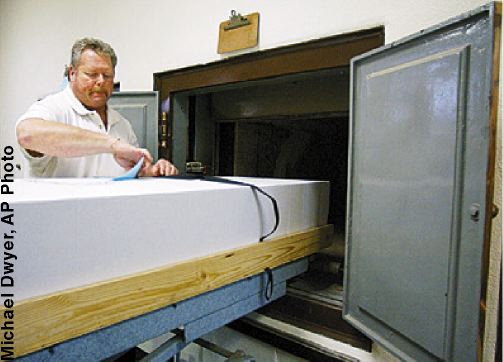 |
||
|
Ecumenical Patriarchate Wins Property Case |
||
|
In a landmark European Court of Human Rights ruling, the patriarchate wins back an orphanage seized by Turkey, establishing its right to property GEORGE GILSON
IN A HISTORIC ruling for the Ecumenical Patriarchate of Constantinople, the European Court of Human Rights (ECHR) condemned Turkey on July 8 over its seizure of the patriarchate's historic Prinkipos (Buyukada) orphanage. This was the sole piece of property in Turkey in the name of the patriarchate. |
 The derelict building that for decades used to house the Ecumenical Patriarchate's orphanage on Prinkipos island |
|
|
Alivizatos says the case is a crucial precedent for all types of rights the patriarchate may claim as a litigant at the ECHR in the future, such as freedom of religion and of speech. The orphanage was acquired by the patriarchate in 1902, as recognised in a sultan's decree. The patriarchate's legal team resisted strong pressures from a group of Greek-American lawyers who persistently demanded that the issue of the patriarchate's legal personality be raised in this case. The church's legal counsel was convinced that the court would throw out the claim for recognition in the context of this case. The court found that Turkey breached the protocol to the European Convention of Human rights, in relation to protecting the right to property: "Every natural or legal person is entitled to the peaceful enjoyment of his possessions. No one shall be deprived of his possessions except in the public interest and subject to the conditions provided for by law and by the general principles of international law. The preceding provisions shall not, however, in any way impair the right of a state to enforce such laws as it deems necessary to control the use of property in accordance with the general interest or to secure the payment of taxes or other contributions or penalties." The orphanage case was the first time the patriarchate sued the Turkish state directly. The Turkish government has three months to appeal the ruling. If it stands, then it must either return the property or compensate the church. The patriarchate has declared that it wants the building back, but its lawyers have estimated the value of the building, which stands on 23,000 square metres of prime property on the resort island, at 80 million euros. The ECHR ruling is a major blow to the 1935 Turkish law governing charitable foundations, which required all properties to be registered with the state in 1936. The Turkish Foundations Directorate interpreted the law and a 1974 court ruling in order to deny Greek-founded ownership of properties acquired after the 1936 registration. The ECHR said the 1935 law does not offer sufficient solid ground to seize property. A 2007 Turkish law allowed Greeks to claim back seized property confiscated by the Turkish state, but not those already sold on to third parties, which represent the vast majority. State compensation for those properties would be astronomical. The European Court struck down Turkey's argument that the Ecumenical Patriarchate lost title to the property because of the fact that it was the Prinkipos orphanage foundation that registered the property in 1936 and not the patriarchate. But the ruling states that despite the fact that it was used as an orphanage for many years, it still belonged to the patriarchate. "The Turkish authorities could not proceed with such a privation of property without providing adequate compensation," the court said, noting that even seizure for the public good would not have altered that principle. |
||
|
(Posting Date 4 August 2008) HCS readers can view other excellent articles by this writer in the News & Issues and other sections of our extensive, permanent archives at the URL http://www.helleniccomserve.com./contents.html
All articles of Athens News appearing on HCS have been reprinted with permission. |
||
|
||
|
2000 © Hellenic Communication Service, L.L.C. All Rights Reserved.
http://www.HellenicComServe.com |
||

